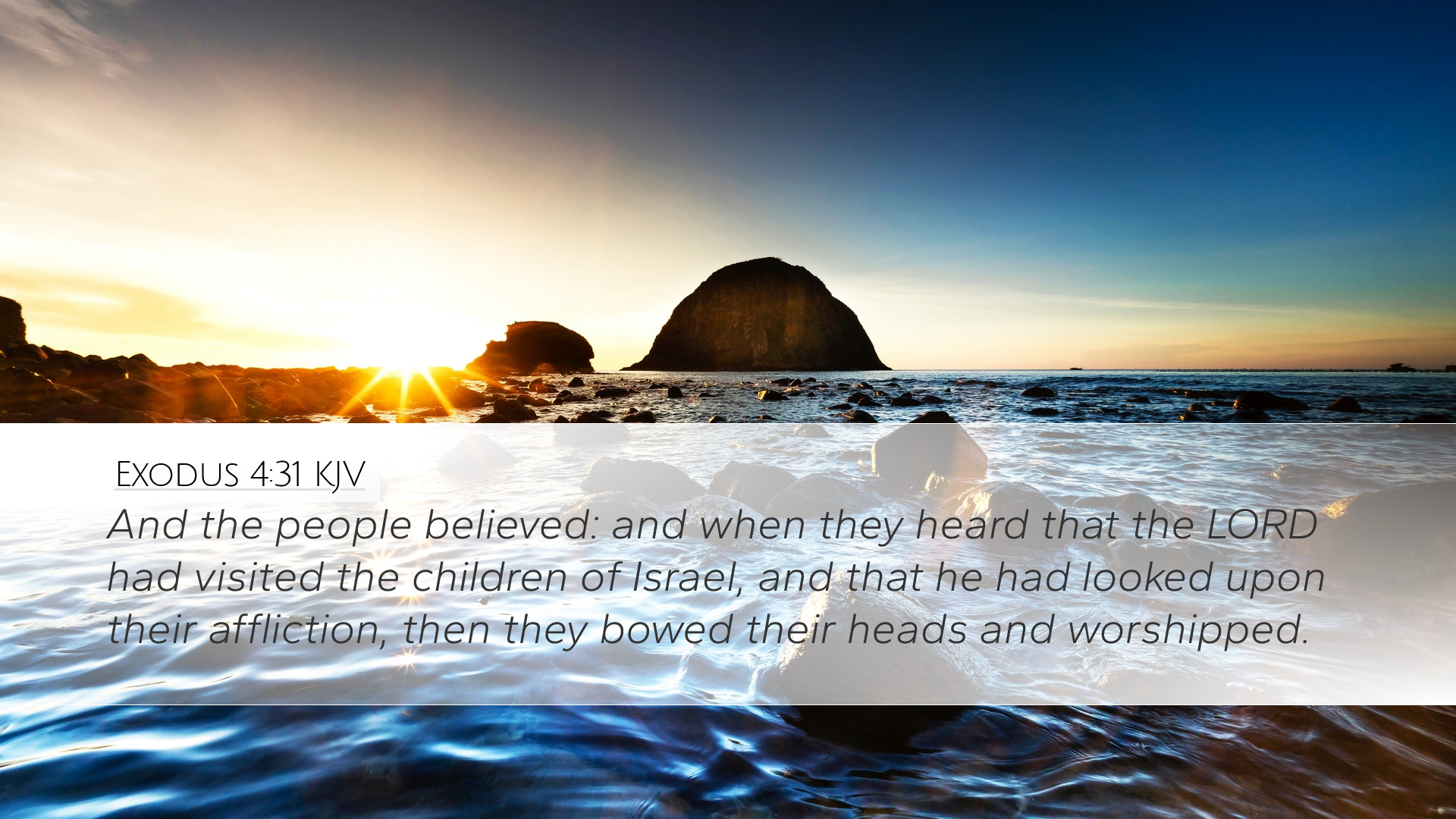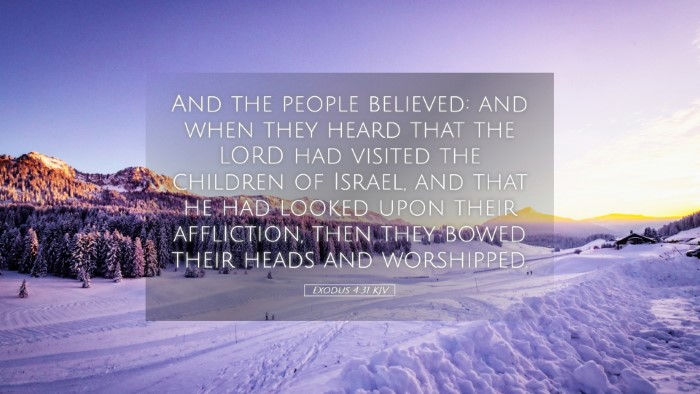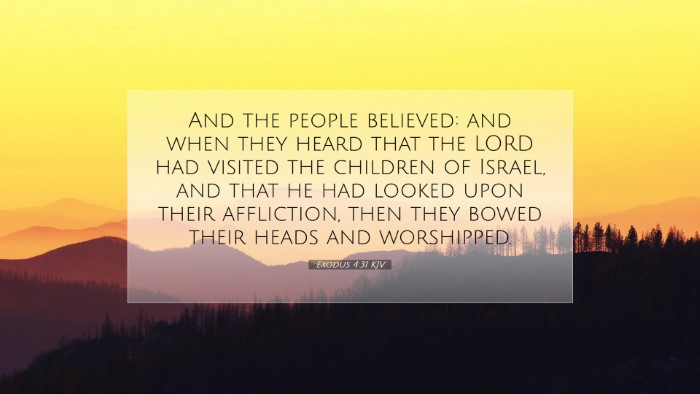Exodus 4:31 Commentary
Verse Context: Exodus 4:31 reads, "And the people believed: and when they heard that the LORD had visited the children of Israel, and that he had looked upon their affliction, then they bowed their heads and worshipped." This verse comes at a pivotal moment when Moses returns to Egypt to lead the Israelites out of bondage.
Overview of Themes
This verse encapsulates profound themes of faith, divine visitation, and worship. It indicates a response of the people to God's intervention in their plight. Commentaries by scholars such as Matthew Henry, Albert Barnes, and Adam Clarke provide insight into the significance of these themes.
Faith and Belief
Matthew Henry explains that the belief of the Israelites is significant not only in its immediacy but also in what it reveals about their spiritual state. After generations of suffering, the affirmation of faith underscores that God’s promises remain valid, even in seemingly hopeless situations.
Albert Barnes adds that the belief of the people demonstrates a transformative moment. Their faith is a response to God’s revelation and a recognition of His commitment to their plight. It indicates a shift from despair to hope, which is crucial in the narrative of their liberation.
Divine Visitation
The phrase "the LORD had visited" denotes a historical action that carries covenant implications. Adam Clarke highlights that God's visitation is not merely physical but spiritual and purposeful. It conveys the idea that God is actively involved in redeeming His people, bringing forth deliverance from oppression.
Henry notes that this divine visitation serves as reassurance for the Israelites. In recognizing God’s attention to their suffering, it encourages the Israelites to reflect on His faithfulness. They are reminded that God is aware of their pain and is taking steps toward their emancipation.
Recognition of Affliction
The mention of Israel's affliction is central to understanding the emotional and spiritual context. Barnes suggests that the acknowledgment of their suffering plays a dual role: it not only highlights their plight but also serves to magnify God’s response. The depth of their suffering makes the acknowledgment of divine intervention all the more poignant.
Clarke elaborates that recognizing one's affliction is essential for genuine worship. The Israelites' understanding of their situation catalyzed their response to God's grace. They are not merely passive recipients of deliverance; they engage with their own hardship which leads them towards meaningful worship.
Response of Worship
The conclusion of the verse, where the Israelites bow their heads and worship, serves as a vital culmination of their belief and recognition. Matthew Henry elucidates that genuine worship arises from a place of thanksgiving and reverence when one acknowledges God’s involvement in their life. This act of worship signifies their gratitude and submission to God’s sovereignty.
Albert Barnes emphasizes that worship, in this context, is not merely an emotional reaction but a profound act of allegiance to God. The bowing of heads signifies their acceptance of God's authority and their commitment to follow His guidance as they move toward liberation.
Pastoral Insights
This verse presents rich material for sermon preparation and pastoral care, especially in illustrating the mechanics of faith amidst adversity. The behaviors of the Israelites serve as a model for congregations today. It encourages believers to recognize their own afflictions while holding firmly to the belief that God visits His people in times of trouble.
In counseling sessions, this passage can be a source of hope for those who feel neglected or downtrodden. It reassures them that God sees their affliction and that faith—however small—can lead to monumental change.
Theological Reflection
Theological reflections on Exodus 4:31 remind us of the ongoing nature of God’s covenant relationship with His people. Clarke points out that this scripture foreshadows the greater deliverance through Jesus Christ, where God’s ultimate visitation leads to salvation for all mankind.
This verse provides a paradigmatic understanding of worship that emphasizes the necessity of awareness of God's past and present actions in the life of His people. It invites deeper reflection on how believers today can continually offer thanks and bow in worship in response to God’s ongoing redemptive acts in their lives.
Conclusion
Exodus 4:31 encapsulates essential truths that remain relevant. The Israelites' faith in God amid their suffering, recognition of His visitation, and resultant worship provide a framework for understanding the dynamics of faith, grace, and divine response. It serves as a powerful reminder for believers in all walks of faith about the importance of recognizing God in their lives, especially during trials. As pastors, students, theologians, and scholars delve into this verse, may they uncover the depths of God’s promise and faithfulness to His people through every generation.


